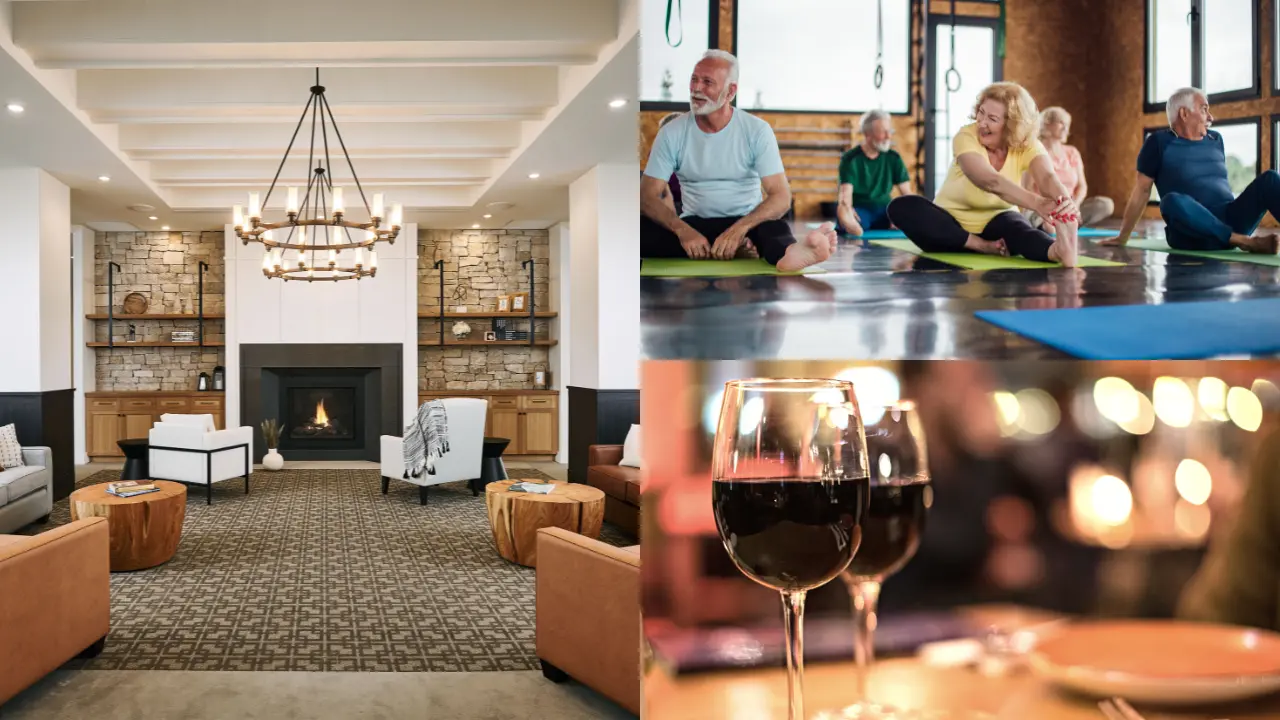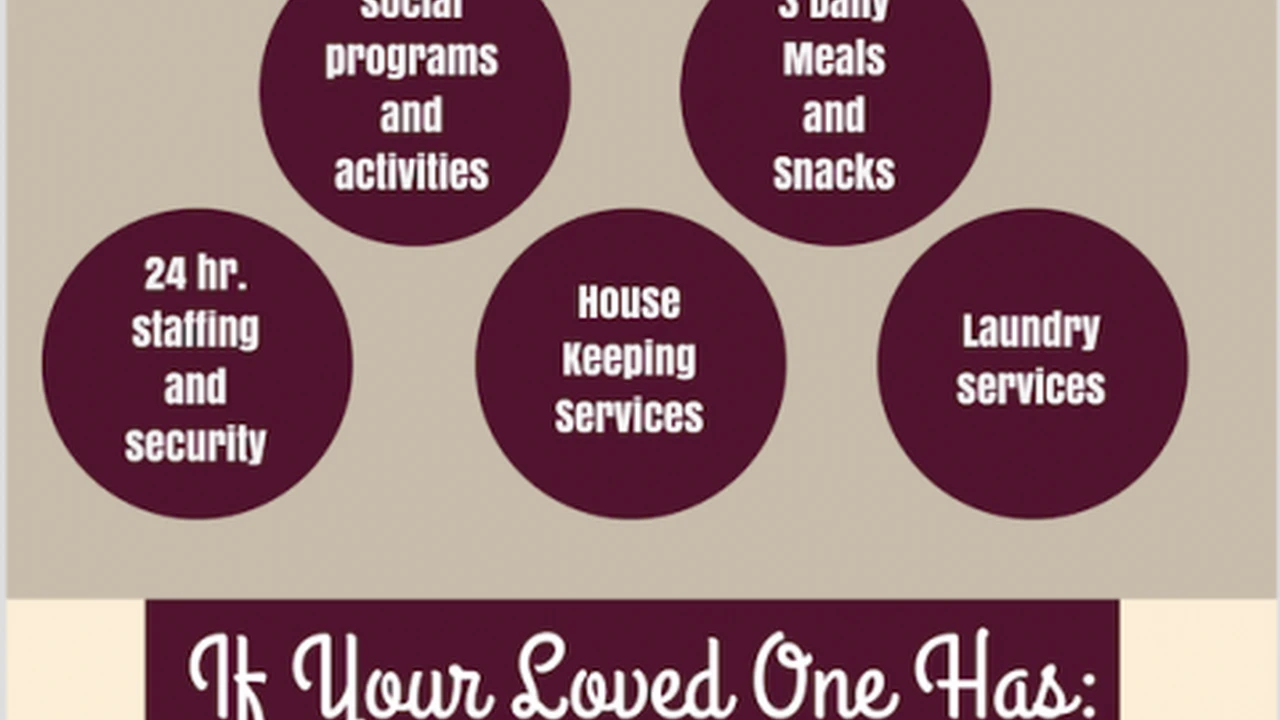5 Questions to Ask Memory Care Directors
Prepare for your memory care tours with these critical questions to ensure you gather all necessary information about care.

5 Questions to Ask Memory Care Directors
Navigating the world of memory care for a loved one can feel overwhelming. It's a significant decision, filled with emotional weight and practical considerations. When you're touring memory care facilities, it's easy to get caught up in the aesthetics – the beautiful common areas, the cheerful paint colors, the inviting gardens. While these elements are important for a comfortable environment, the true measure of a facility's quality lies in its care philosophy, staff expertise, and how it addresses the unique challenges of dementia and Alzheimer's disease. To help you cut through the noise and get to the heart of what truly matters, we've compiled five critical questions you absolutely must ask memory care directors. These questions are designed to uncover vital information, compare different facilities effectively, and ultimately help you make the best choice for your loved one's well-being.
Understanding Staff Training and Expertise in Memory Care
One of the most crucial aspects of quality memory care is the training and expertise of the staff. Caring for individuals with dementia requires a specialized skill set that goes beyond general elder care. It involves understanding the progression of cognitive decline, managing challenging behaviors with compassion, and fostering an environment that promotes dignity and engagement. Don't be shy about delving deep into this area.
Question 1: What specific training do your staff members receive in dementia care, and how often is this training updated?
This question is paramount. You want to know that the people directly interacting with your loved one are not just caregivers, but specialists in dementia. Look for facilities that emphasize ongoing, specialized training. Initial orientation is a good start, but dementia care best practices evolve, and staff should be continuously educated on the latest approaches. Ask about certifications, such as Certified Dementia Practitioner (CDP) or similar programs. Inquire if training covers specific dementia types, communication techniques for cognitive impairment, behavior management strategies, and person-centered care approaches. A facility that invests heavily in its staff's education is likely to provide a higher quality of care. For instance, some facilities might partner with organizations like the Alzheimer's Association for regular workshops, while others might have in-house dementia care specialists who conduct frequent training sessions. Understanding the frequency of these updates is also key; annual refreshers are a good baseline, but more frequent, targeted training on specific topics is even better. This commitment to continuous learning reflects a proactive approach to care that directly benefits residents.
Exploring Resident Engagement and Activity Programs for Dementia
A vibrant and engaging activity program is not just a bonus in memory care; it's a fundamental component of maintaining cognitive function, reducing agitation, and improving overall quality of life for residents with dementia. Activities should be tailored to individual abilities and preferences, promoting a sense of purpose and joy.
Question 2: Can you describe your daily activity schedule, and how do you personalize activities for residents with varying cognitive abilities and interests?
A generic activity calendar might look good on paper, but true memory care excellence lies in personalization. Ask for a sample daily schedule and then probe deeper. How do they assess a resident's interests and cognitive level upon admission? Do they offer a variety of activities, including physical exercise, cognitive stimulation, creative arts, and social interaction? For example, a good program might include reminiscence therapy, music therapy, gentle yoga, gardening clubs, or even simple tasks like folding laundry, which can provide a sense of purpose. Avoid facilities that offer a 'one-size-fits-all' approach. You want to see evidence of individualized care plans that adapt as a resident's condition changes. Ask about the staff-to-resident ratio during activities – adequate staffing ensures that residents receive the attention and support they need to participate meaningfully. Some facilities use technology, like interactive touchscreens with personalized games or virtual reality experiences, to engage residents. For example, the 'Rendever' VR system (approx. $5,000-$10,000 for a facility package) offers virtual travel and experiences, which can be incredibly stimulating for residents. Another product, 'Obie' by Obie for All (approx. $3,000-$6,000), projects interactive games onto tables or floors, encouraging movement and social interaction. These technologies, while an investment, demonstrate a commitment to innovative and engaging programming. Compare how different facilities integrate such tools or similar hands-on, personalized activities into their daily routines.
Understanding Safety Protocols and Secure Environments in Memory Care
Safety is paramount in memory care. Individuals with dementia may wander, become disoriented, or be prone to falls. A secure environment, coupled with vigilant staff and robust safety protocols, is essential for peace of mind.
Question 3: What specific safety measures and security protocols are in place to prevent wandering and ensure resident safety both indoors and outdoors?
This question addresses one of the biggest concerns for families. Look for facilities with secure perimeters, alarmed doors, and clear protocols for managing residents who may wander. Inquire about staff training on wandering prevention and response. Are outdoor spaces secure and easily accessible? Do they use technology, such as discreet GPS tracking devices or motion sensors, to enhance safety? For example, some facilities might utilize wearable GPS trackers like the 'AngelSense GPS Tracker' (device cost around $99, monthly service $30-$45) which offers real-time location tracking and geofencing alerts. Another option is the 'CarePredict Tempo Series' (facility-based system, pricing varies but can be $10,000+ for installation and monthly fees), which uses AI and sensors to detect changes in daily routines, potentially indicating a fall or wandering attempt. While these are often facility-level investments, understanding if a facility employs such advanced safety measures can be a differentiator. Also, ask about emergency procedures, fire safety, and how they handle medical emergencies. A comprehensive safety plan should be clearly articulated and regularly reviewed. The goal is to create an environment that feels open and comfortable, yet is inherently secure, allowing residents a sense of freedom within safe boundaries.
Exploring Communication and Family Involvement in Memory Care
Effective communication between the facility and family members is vital for a successful memory care experience. Families need to feel informed, heard, and involved in their loved one's care journey. Transparency and accessibility are key.
Question 4: How do you communicate with families about a resident's well-being, changes in condition, and care plan updates, and what opportunities are there for family involvement?
Ask about the frequency and methods of communication. Do they use a dedicated communication app, regular phone calls, email updates, or scheduled care conferences? How quickly are families notified of significant changes or incidents? A good memory care facility will have a clear communication policy and be proactive in keeping families informed. Inquire about opportunities for family involvement, such as family support groups, resident-family events, or volunteer opportunities. Some facilities use digital platforms like 'Caremerge' (pricing varies for facilities, typically subscription-based) or 'Connected Living' (similar pricing model) which allow families to receive updates, view activity calendars, and communicate directly with staff. These platforms can greatly enhance transparency and engagement. Compare how different facilities facilitate this crucial connection. You want a facility that views families as partners in care, not just visitors. Ask about the process for addressing concerns or complaints – a clear, accessible channel for feedback is a sign of a well-managed facility.
Understanding the Transition and Adaptation Process in Memory Care
Moving into a memory care facility can be a challenging transition for both the resident and their family. A supportive and structured adaptation process can make a significant difference in how well a resident adjusts to their new environment.
Question 5: What is your process for helping new residents transition and adapt to the memory care environment, and how do you support families during this period?
This question addresses the initial critical period. Ask about their onboarding process. Do they have a dedicated staff member who helps new residents settle in? What strategies do they employ to minimize anxiety and confusion during the first few days or weeks? This might include pairing a new resident with a 'buddy' resident, having consistent caregivers, or creating a personalized welcome plan based on the resident's preferences. For families, inquire about support groups, counseling services, or educational resources they offer to help navigate the emotional aspects of the transition. Some facilities might use personalized sensory items or familiar objects from home to create a comforting environment. For example, a weighted blanket like the 'Weighted Blanket by YnM' (approx. $40-$80) can provide a sense of calm and security for some residents. Another useful tool can be a personalized digital photo frame like the 'Nixplay Smart Digital Photo Frame' (approx. $150-$250), pre-loaded with familiar family photos, which can aid in reminiscence and comfort. While these are often personal purchases, a facility that encourages and integrates such personal touches into their transition plan demonstrates a deeper understanding of resident needs. A facility that has a thoughtful, compassionate, and structured approach to transition will likely provide a more positive experience for everyone involved.
Comparing Memory Care Facilities and Making Your Decision
After asking these critical questions and touring several facilities, you'll likely have a wealth of information. Now comes the task of comparing and making a decision. Don't rush this process. Take detailed notes during your tours, and don't hesitate to ask follow-up questions. Consider creating a spreadsheet to compare facilities side-by-side on key criteria, including the answers to these five questions, as well as cost, location, and overall atmosphere. Pay attention to your gut feeling – how did the staff interact with residents? Did the environment feel warm and inviting? Were your questions answered thoroughly and patiently?
Remember, the 'best' memory care facility isn't necessarily the most expensive or the one with the most luxurious amenities. It's the one that best meets your loved one's individual needs, provides compassionate and expert care, and offers a supportive environment for both residents and their families. By asking these five critical questions, you'll be well-equipped to make an informed decision that brings peace of mind and ensures the highest quality of life for your loved one.
Consider the long-term implications. Dementia is a progressive disease, and your loved one's needs will change over time. Does the facility have the flexibility and resources to adapt to these evolving needs? Are there different levels of care within the memory care unit, or a clear pathway for increased support if required? A facility that demonstrates foresight and adaptability in its care planning is a strong contender.
Finally, trust your instincts. You know your loved one best. If something feels off, or if you have lingering doubts, continue your search. The right memory care environment can significantly enhance your loved one's quality of life, providing comfort, dignity, and specialized support during a challenging time. Your thorough investigation now will pay dividends in the future, ensuring that your loved one receives the exceptional care they deserve.
:max_bytes(150000):strip_icc()/277019-baked-pork-chops-with-cream-of-mushroom-soup-DDMFS-beauty-4x3-BG-7505-5762b731cf30447d9cbbbbbf387beafa.jpg)






